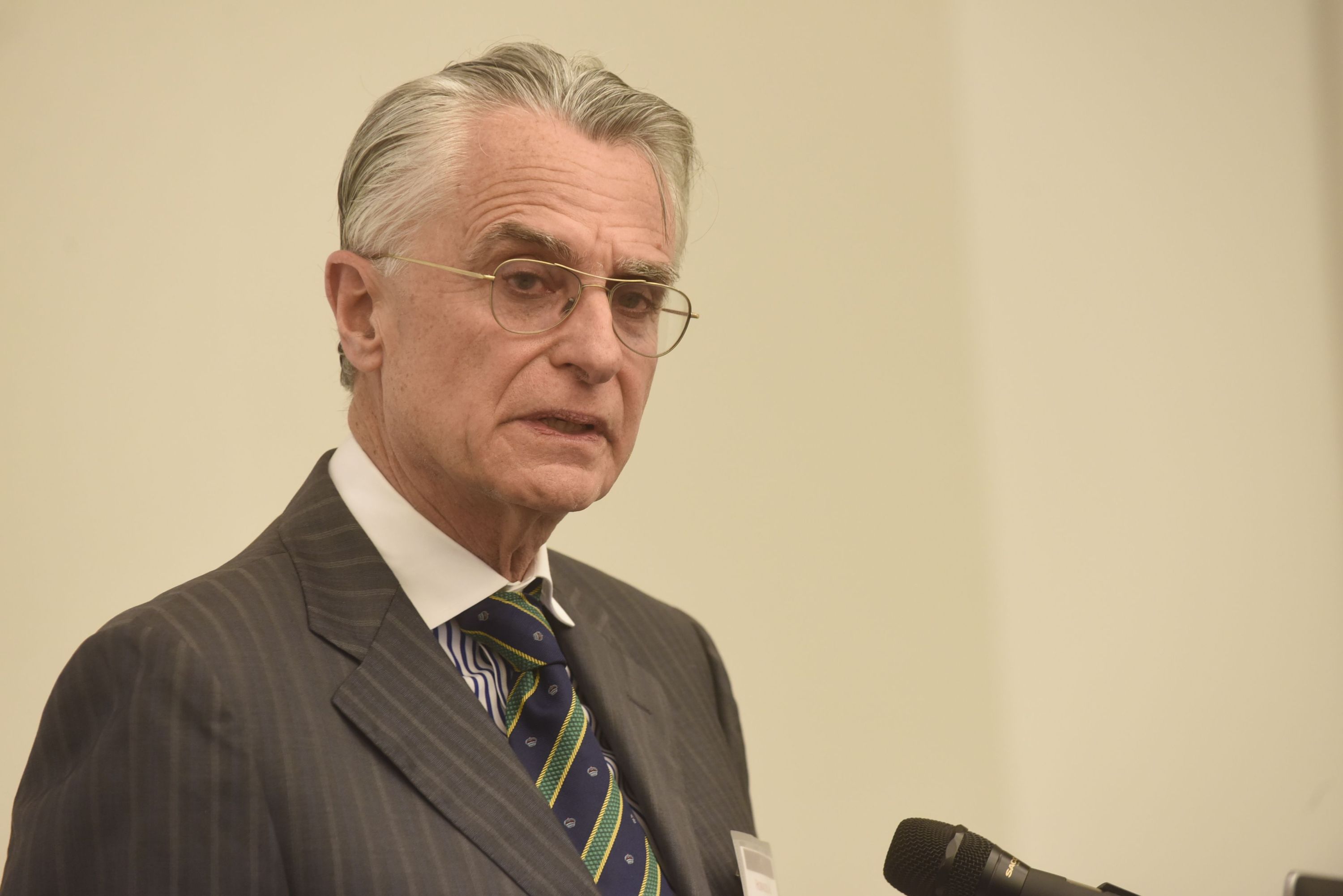
Virtual Arbitration in Viral Times: The Impact of Covid-19 on the Practice of International Commercial Arbitration
By Professor Horacio Grigera Naón & Adjunct Professor Björn Arp
The international commercial arbitration practitioners were surprised by the outbreak of the COVID-19 crisis in the same way as probably many other professionals. As all others, arbitrators, lawyers and arbitration centers adapted quickly to a reality in which personal contact in offices and hearing rooms risked infection with a novel disease of unpredictable consequences. The international — not to say global — nature of arbitration activity coincided with the global scope of the pandemic, thus affecting everyone without exception.
The arbitration practitioners set out to hold hearings through virtual means, to sign decisions and awards electronically, and to introduce virtual technologies in all other aspects of the conduct and administration of the arbitration procedure. Those professionals in the field of arbitration who in the past had already worked with virtual technologies had an advantage in adapting more easily to the new reality. Indeed, in order to offer faster arbitration and reduce costs, some arbitration institutions already offered before the crisis virtual hearings and other procedural support with the use of new technologies. For example, since 2004, the International Chamber of Commerce (ICC) offered a guide for the use of new technologies in arbitration to address legal issues such as the preservation of confidentiality of information in electronic transmissions, the authenticity of documents, and other related issues. In 2017 the ICC established rules of summary procedure for small claims cases, where the arbitrators do not need to hold hearings and base their awards on documents only. The summary arbitration rules of the International Institute for Conflict Prevention & Resolution (CPR) include the possibility of hearings via videoconference. Currently, there is already a long list of institutional rules that recognize legal effects to arbitrations conducted entirely on distance and through virtual means.
But the COVID-19 crisis has caused an exponential acceleration of these developments towards the virtual practice of arbitration. In less than two months, between March and April 2020, practically all arbitration institutions adapted their rules to the possibility that arbitrators can conduct the entire procedure remotely. The secretariats of most arbitration institutions, such as ICC, SIAC, HKIAC and LCIA, have confirmed that they are still operational and that they continue to register and manage new and existing cases. For example, the ICC adopted the Guidance Note on Possible Measures Aimed at Mitigating the Effects of the Covid-19 Pandemic” (April 9, 2020), which offers a catalog of measures that arbitrators can legitimately adopt without risking a successful challenge by one of the parties. Also institutions in Latin America have followed this practice. For example, the Arbitration and Mediation Center of the Santiago Chamber of Commerce (CAM) published a statement urging arbitrators and parties to use technological platforms to hold hearings and to use the electronic processing system for the presentation of documents called E-CAM, which already existed since 2013. In addition, the arbitration institutions themselves have adapted their internal operation to virtual work. Most of this work is done through virtual office. The decision-making bodies of the arbitration institutions also hold their work sessions virtually, for example to decide on arbitrator challenges.
Sometimes the governments promoted these developments towards the opening to new technologies. In Colombia, for example, the government adopted Decree No. 491 (2020), which prohibits suspension of proceedings in arbitration, conciliation, and other mechanisms of alternative dispute resolution. Only in cases of technical, personal or legal difficulties that cannot be overcome with reasonable efforts, the proceedings may be suspended. One of the reasons States adopt such compulsory measures is because of the public interest in continuing the expeditious resolution of commercial disputes to avoid burdening even further the business community than what it already is due to COVID-19.
However, practice has also shown that sometimes it is simply not possible to hold virtual hearings or other meetings between the parties and the arbitrators. It can be difficult to conduct witness hearings online in cases involving complex fact patterns. In such particularly complex cases it may be justified to suspend or postpone the hearing.
In any case, many arbitration practitioners also confirm that the crisis has a great impact on the profession beyond the specific circumstances of the confinement. It seems that the use of technologies that allow virtual contact between people, while dispensing with personal contact and the time-consuming travel that this contact often requires, is something irreversible that will forever transform the way arbitral justice is delivered.
It is still early to know what other related implications this transformation will have. For example, law firms start to question the desirability of the high costs of office space and meeting rooms, and universities consider whether it would be more effective and attractive for students to transfer teaching to forms of virtual interaction between student and professor. A new way of defining professional relationships between people seems to arise as all humanity is currently involved in the experiment of living confined to their homes and prevented from maintaining the hitherto usual professional and personal exchanges.
Many have adapted to this new way of life. This is probably a good development, as climate change and overpopulation also demand innovative changes in our professional and personal cultures.